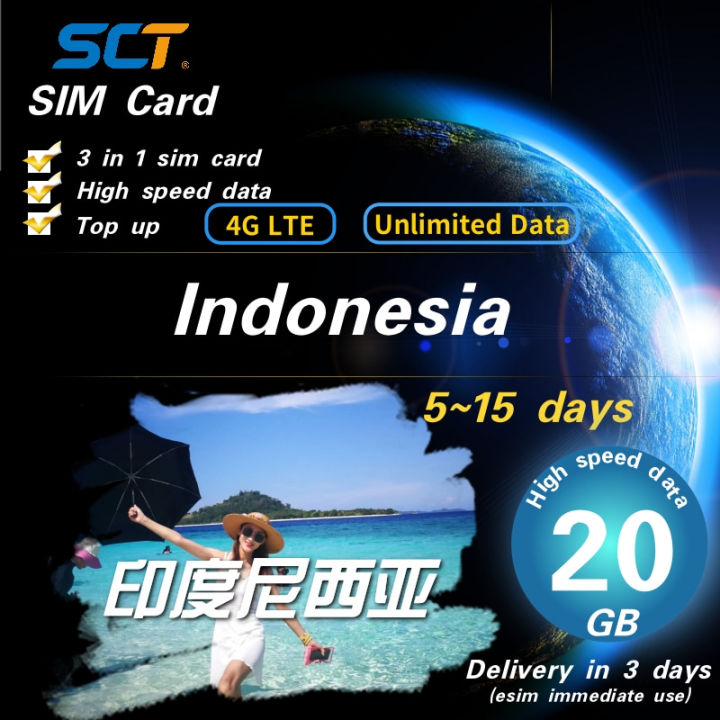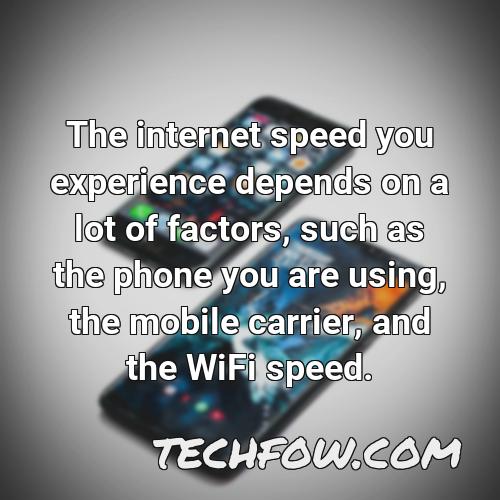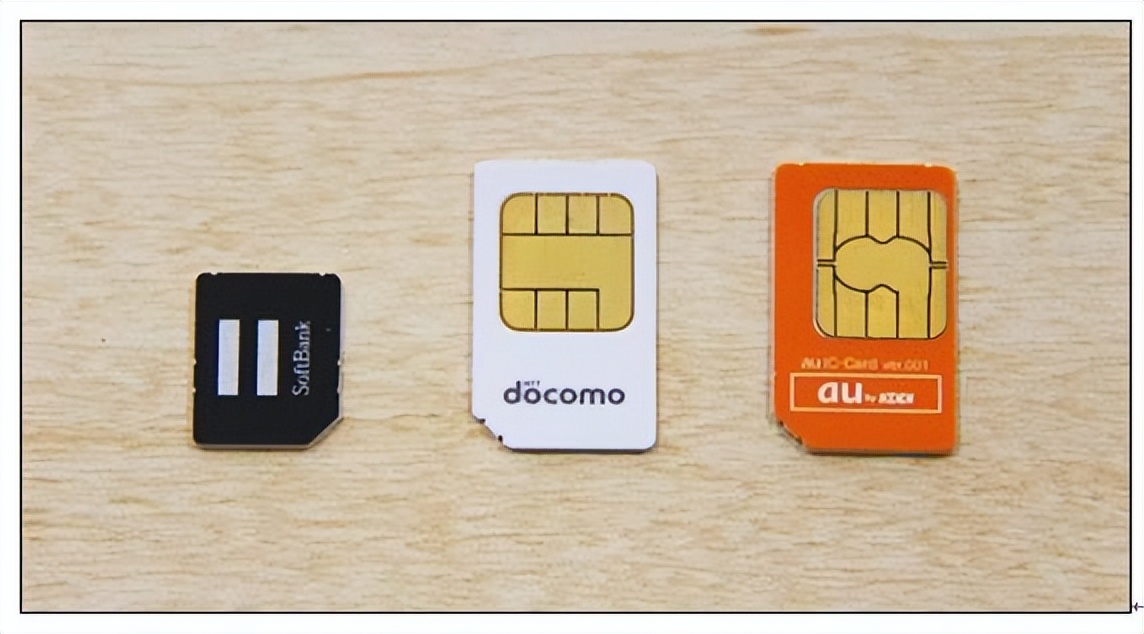Breathtaking Info About Can A SIM Card Affect Data Speed
![Does Sim Card Affect Data Speed [Detailed Response] Does Sim Card Affect Data Speed [Detailed Response]](https://www.techfow.com/wp-content/uploads/2022/10/the-user-s-data-plan-users-who-have-a-data-plan-that-includes-mobile-broadband-have-the-best-speed.jpg)
Does Sim Card Affect Data Speed [Detailed Response]
Decoding the Data Mystery
1. SIM Cards and Data Speeds
Ever felt like your phone's data is crawling at a snail's pace, even though you're paying for lightning-fast 5G? You might start to wonder if your SIM card is the culprit. It's a fair question! That tiny piece of plastic holds a lot of information, but can it actually be a bottleneck for your internet speed? Let's dive in and separate the facts from the fiction, shall we?
The short answer is usually no, your SIM card isn't the primary reason for slow data speeds. Think of it like this: your SIM card is mainly your phone's ID card on the network. It tells your carrier who you are and what services you're entitled to. It's more about authentication than acceleration. However, there are a few situations where your SIM could indirectly impact your data experience. Imagine your SIM is like a key to a very fast car — the key itself doesn't make the car go faster, but you need it to unlock the car's potential speed.
Think of it as a highway system. Your phone is a car, and the data network is the highway. Your SIM card is like your driver's license, identifying you as a legitimate user of the highway. The SIM card itself doesn't make your car go faster, but if you don't have a valid license, you can't even get on the highway! So, while it's not directly responsible for speed, it's definitely a crucial piece of the puzzle.
The main factors affecting your data speed are network congestion, your phone's hardware capabilities, the type of mobile network your carrier supports (3G, 4G, 5G), and the signal strength in your location. So before you start blaming your SIM card, consider if it's rush hour on the data highway, or if you're trying to connect in a remote area with weak signal strength.

The SIM Card's Supporting Role
2. How SIM Cards Can Indirectly Influence Your Connection
Okay, so we've established that SIM cards aren't speed demons in disguise. But there are a couple of scenarios where your SIM card can indirectly affect your data speed. Let's take a closer look:
First, age can be a factor. Really old SIM cards might not be fully compatible with the latest network technologies. For example, if you're trying to use a SIM card from the 3G era on a 5G network, you might not get the optimal speeds. It's like trying to play a modern video game on an ancient computer — it might work, but it won't be pretty. Newer SIM cards are designed to handle the faster data transfer rates and newer authentication protocols that come with 4G and 5G.
Second, the type of SIM card can also matter. We're talking about physical SIMs versus eSIMs (embedded SIMs). eSIMs are becoming increasingly popular, and they offer some advantages, like the ability to switch carriers without physically swapping out a card. While eSIMs themselves don't inherently boost data speeds, they make it easier to manage multiple profiles. For example, you could have one profile for work and another for personal use, each with different data plans. This flexibility can help you optimize your data usage and potentially improve your overall experience.
Third, sometimes your carrier might require a SIM swap to fully activate certain features or network upgrades. It sounds weird but think of it like this, sometimes with new advances, your phone can be the latest and greatest, but if your SIM is on the old list from your carrier, they want you to upgrade the SIM as well as part of the requirements. It's rare, but if you're experiencing persistent slow speeds, it might be worth checking with your carrier to see if they recommend a new SIM card.

Beyond the SIM
3. Unmasking the True Culprits Behind Slow Data Speeds
Alright, let's shift the focus away from SIM cards and shine a spotlight on the real culprits behind those frustratingly slow data speeds. There are a bunch of factors that play a much bigger role than your SIM card ever could.
First and foremost, we have network congestion. This is like rush hour on the internet. When lots of people are trying to use the same network at the same time, everyone's speeds slow down. It's especially noticeable in densely populated areas or during peak usage hours (like evenings when everyone's streaming Netflix). You can't really fix this, but you can try using Wi-Fi instead or waiting until off-peak hours.
Next up is signal strength. If you're in a location with poor coverage (like a basement, a rural area, or inside a building with thick walls), your phone will struggle to connect to the network, and your data speeds will suffer. Try moving to a different location with better reception, or use a Wi-Fi signal booster if you're indoors. Sometimes even just moving a few feet can make a big difference.
Then there's your phone's hardware. Older phones might not support the latest network technologies or have the most advanced modems, which can limit your data speeds. Upgrading to a newer phone can often make a significant difference. It's like upgrading from an old bicycle to a sports car — the potential for speed is much greater. Also, phone hardware is a big factor, not just the SIM card.
Finally, your data plan itself can be a limiting factor. Some plans have speed caps or data throttling policies that kick in after you've used a certain amount of data. Check your plan details to see if you're being throttled. If you are, you might need to upgrade to a plan with more data or higher speeds.
![Can A Damaged Sim Card Affect Signal [Fact Checked!] Can A Damaged Sim Card Affect Signal [Fact Checked!]](https://www.techfow.com/wp-content/uploads/2022/10/sim-cards-are-small-pieces-of-plastic-that-store-our-phone-number-and-other-important-data.jpg)
Can A Damaged Sim Card Affect Signal [Fact Checked!]
Troubleshooting Slow Data
4. Taking Control
So, you're still stuck with slow data speeds? Don't despair! Here are some practical tips and tricks you can try to troubleshoot the issue and hopefully give your connection a boost:
First, restart your phone. This might sound like a clich, but it often works! Restarting your phone clears out temporary files and processes that could be slowing things down. It's like giving your phone a fresh start. It is the equivalent of having the IT guy say "did you try turning it off and on again?".
Second, check your network settings. Make sure your phone is set to automatically select the best available network. You can usually find this option in your phone's settings under "Mobile Networks" or "Connections." Also, ensure that your "Preferred Network Type" is set to 4G/LTE or 5G (if available) and not set to 2G or 3G only.
Third, close unnecessary apps. Apps running in the background can consume data and slow down your connection. Close any apps you're not actively using. Be aware some apps have background data usage that you should toggle off.
Fourth, clear your browser cache and cookies. Over time, your browser can accumulate a lot of cached data and cookies, which can slow down your browsing speed. Clearing this data can help improve performance. On the other hand, cookies are delicious but not so much for phone performance!
Fifth, use a speed test app. There are many free speed test apps available that can help you measure your actual data speed and compare it to what you're supposed to be getting. This can help you determine if the problem is with your phone, your network, or your carrier. Fast.com is a good one and so is Speedtest by Ookla.

Does Dual Sim Affect Speed (New Data!)
The Future of SIMs and Data
5. Looking Ahead
The world of SIM cards and mobile technology is constantly evolving. So, what does the future hold? What kind of innovations and trends can we expect to see in the coming years? Let's take a peek into the crystal ball!
One major trend is the increasing adoption of eSIMs. As we mentioned earlier, eSIMs offer greater flexibility and convenience compared to traditional physical SIM cards. They're also more secure, as they can't be physically removed or stolen. We're likely to see more and more devices adopting eSIM technology in the future.
Another area of development is integrated SIMs (iSIMs). iSIMs are even more integrated than eSIMs. Instead of being a separate chip, the SIM functionality is directly embedded into the phone's processor. This further reduces the need for physical SIM cards and opens up new possibilities for device design and functionality. They are the next evolution step.
Finally, we can expect to see continued advancements in network technology, such as 5G and beyond. These faster networks will require even more sophisticated SIM cards and technologies to handle the increased data transfer rates and security requirements. The SIM card, though seemingly simple, will continue to play a vital role in enabling these advancements.
Ultimately, while your SIM card isn't the primary driver of data speed, it's an essential component of the mobile ecosystem. Understanding its role and how it interacts with other factors can help you troubleshoot slow data speeds and get the most out of your mobile connection. Remember, it's all about finding the right balance and optimizing your setup for the best possible performance!
